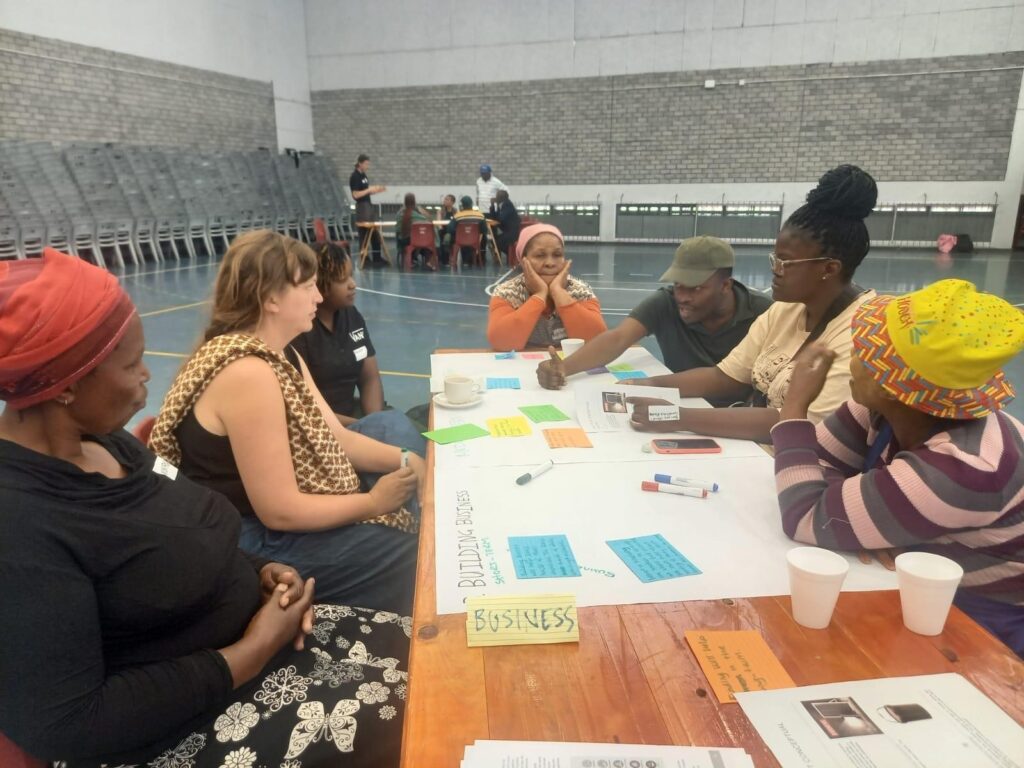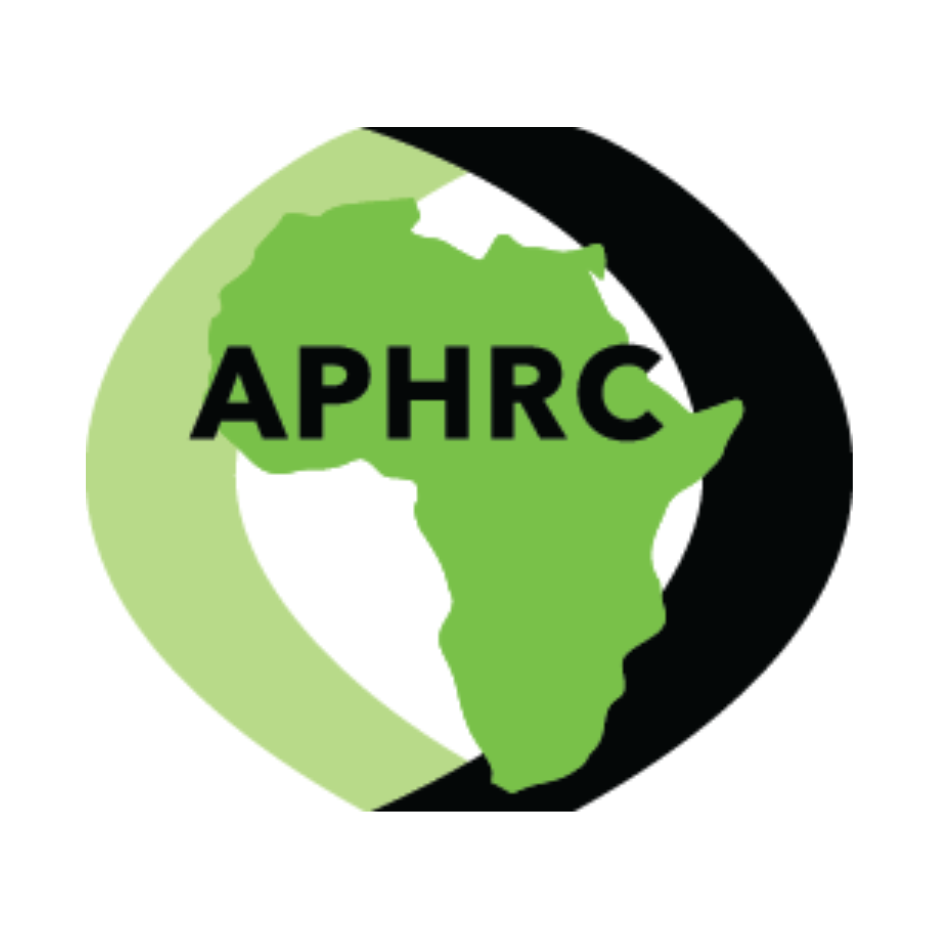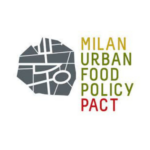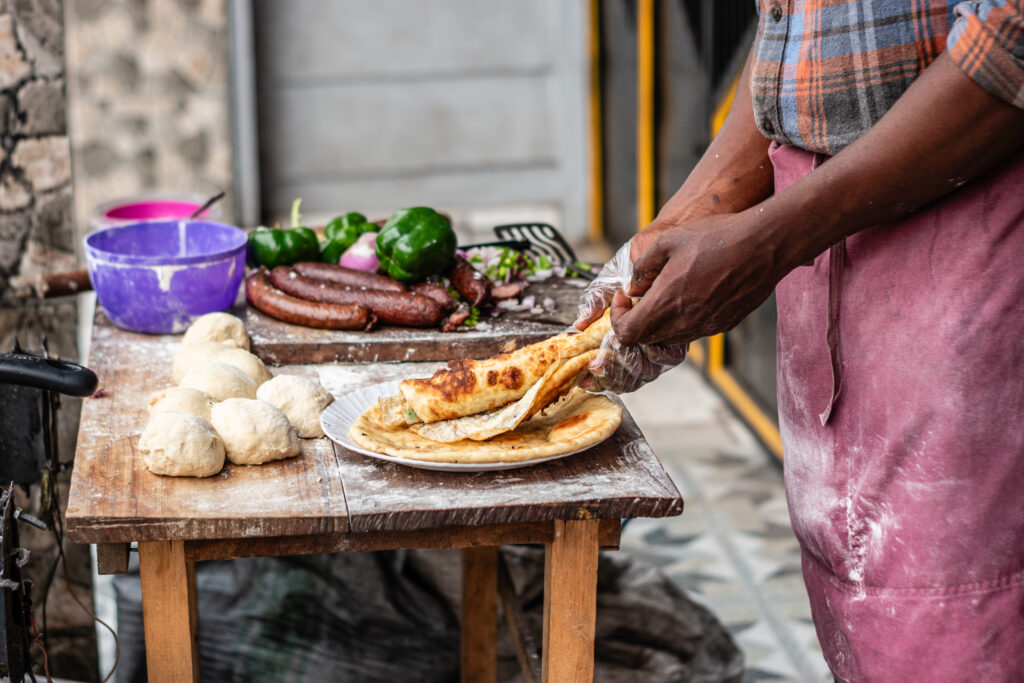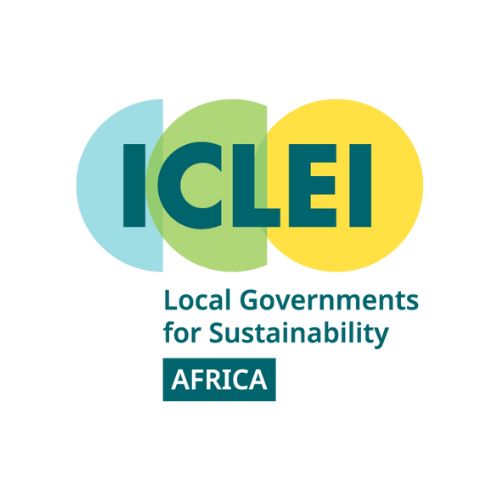Home » Explore the latest project news » Collaboration beyond dialogue
Collaboration beyond dialogue
Insights from the 5th MUFPP regional forum in Dakar, Senegal
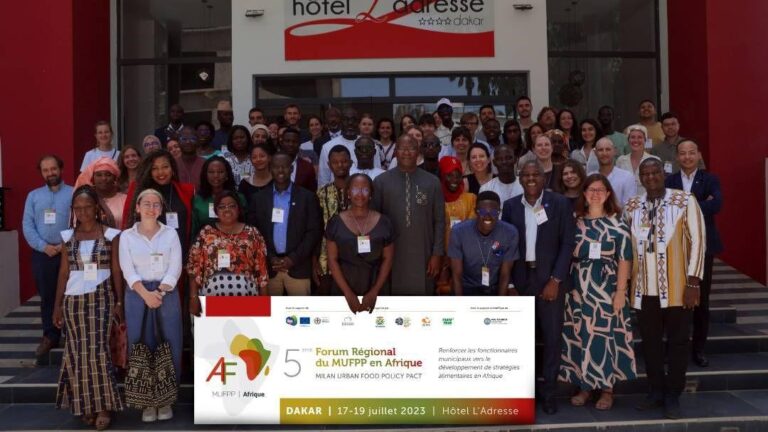
From the 17th to the 19th of July 2023, Dakar, Senegal, became a focal point of transformative dialogue by hosting the 5th MUFPP Regional Forum in Africa, together with the Milan Urban Food Policy Pact (MUFPP) and the NGOs ACRA and Mani Tese. The primary objective of this gathering was clear: to support African cities to foster sustainable urban food systems through cooperation, knowledge sharing, and the provision of innovative tools for effective food policies and actions.
This event was part of MUFPP’s ongoing efforts to regionalise its impact, and built on the previous regional fora in Dakar (2016), Brazzaville (2018), Niamey (2019), and Ouagadougou (2021). The 5th Forum brought together 19 city officials from 12 African cities, along with 10 African and 24 European and Brazilian climate activists from the Food Wave movement. Participating cities included AfriFOODlinks Hub city, Ouagadougou, the sharing cities of Dakar, Antananarivo and Niamey, and network cities of Bamako, Douala and Nairobi, as well as other African cities like Bafoussam, Durban, Praia, Thies and Ziguinchor.
Equipping city officials for effective poicy development
A pivotal moment of the forum was the introduction of the Food Policy Action Canvas (FPAC) by experts from the School of Management at the Politecnico di Milano. This tool was first developed as part of the Milan-led Horizon Food 2030 Food Trails as a strategic management template used for developing new business models and documenting existing ones. This business model canvas was then adapted to address urban food policies, and has proved to be an invaluable resource, simplifying the process for policymakers, aiding in objective identification, stakeholder mapping, and assessment of existing practices.
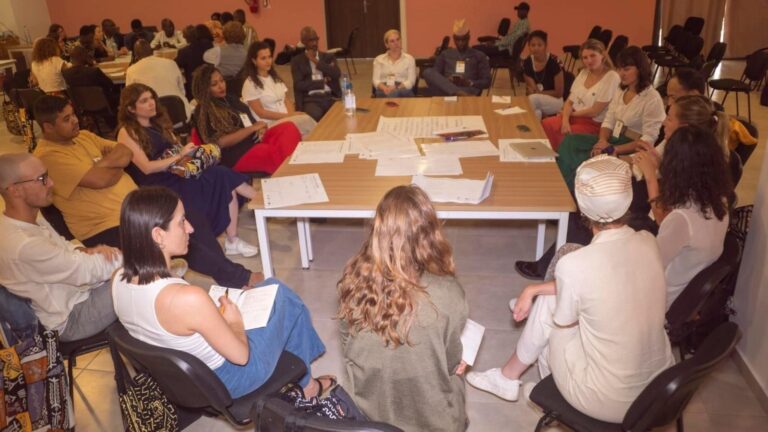
Food policy action canvas training
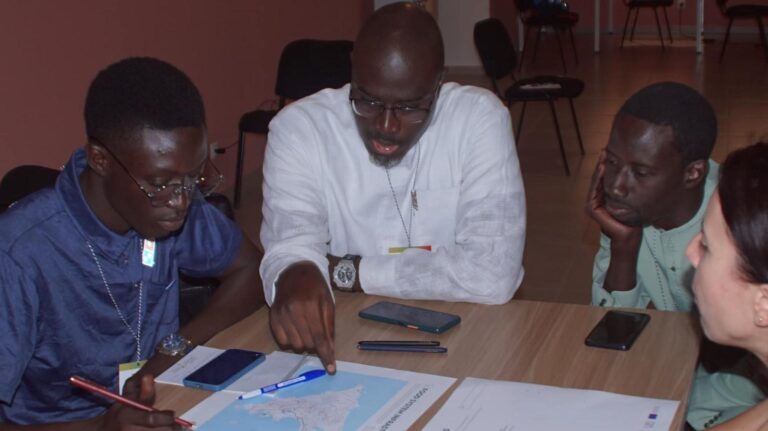
City officials and youth activists collaboratively creating FPAC
During the forum, facilitators assisted participants in creating their own FPAC, fostering collaboration between city officials and young activists, which resulted in diverse perspectives and life experiences, creating a dynamic environment for learning and growth.
Collaborative dialogue: Cities and development partners unite
The forum facilitated vibrant exchanges between international cooperation agencies, international organisations and MUFPP African city officials. The sessions were structured around the presentation of AfriFOODlinks project, the Green Cities Initiative by the Food and Agriculture Organization (FAO), and roundtable discussions exploring funded projects and potential synergies among development agencies and city officials.
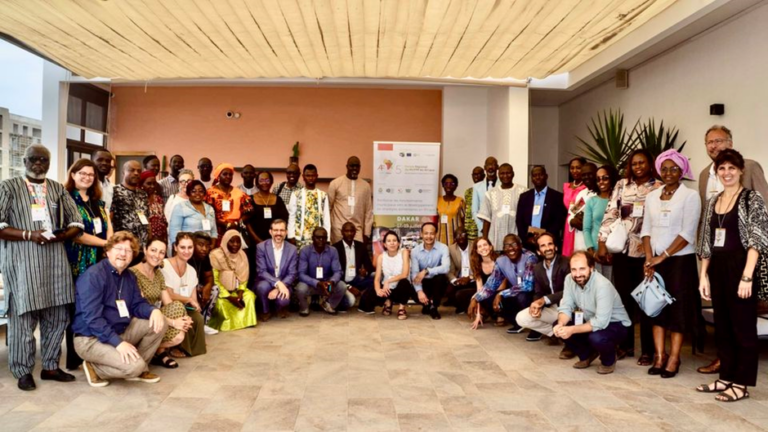
City representatives and development partners
The goal was to collect examples of existing funded projects with replicable strategies or actions that can be successfully implemented across Africa and to explore cooperation and synergies. In attendance were the Italian Agency for Development Cooperation – AICS (HQ and Dakar Office), USAID, the World Bank, UN Habitat, and the International Union for Conservation of Nature – IUCN. Their focus was on exploring viable strategies targeting urban food systems in African cities, specifically those partners of the AfriFOODlinks project.
A particularly enlightening moment came from the representative of the World Bank, who shed light on the challenges faced by international organizations when supporting these types of actions. Historically rooted in national-level interventions, the World Bank acknowledged the need for a paradigm shift. The World Bank emphasized that cities and local governments are the bedrock of impactful change, urging a move towards a more urban-focused strategy. This shift is pivotal, considering the intricate urban context often overlooked amidst broader themes like food security.
Key insights from the discussions:
IUCN – emphasized the critical importance of localisation and stressed the need for robust partnerships with the private sector.
City officers – IUCN’s insight struck a chord with the city officials present, who passionately responded by extending an invitation to organisations to engage directly at the local level, highlighting a common disparity: the often-theoretical praise for decentralization, while in practice, development efforts frequently targeting central governments. In addition, city officials highlighted the lack of effective feedback mechanisms and communication channels between local/city administrations and state/national levels as a pressing issue.
FAO – In response to these concerns FAO proposed a collaborative strategy. They suggested joint advocacy actions involving the MUFPP, international organisations, and development partners to rally governments in supporting local administrations in their dedicated efforts around sustainable food systems. This proposition resonated deeply, paving the way for concerted efforts to bridge the gap between theory and practice, fostering stronger linkages between local initiatives and national support.
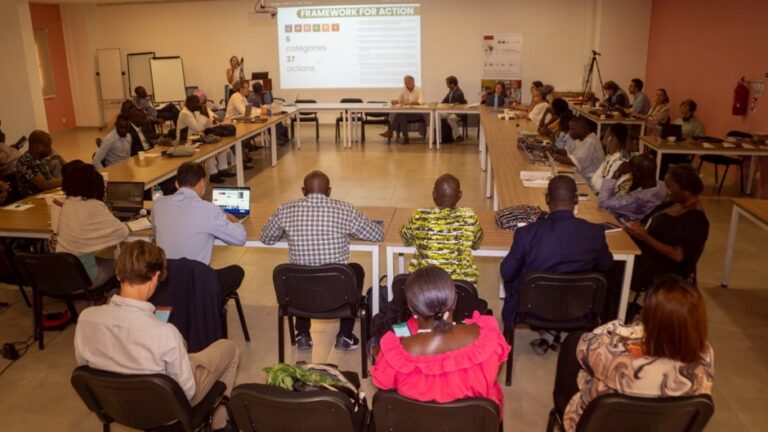
A round table dialogue between city officials and international agencies
The impact of collaborative initiatives beyond dialogues:
The 5th MUFPP Regional Forum in Africa wasn’t just a three-day event; it was a transformative experience that left a lasting imprint on the landscape of sustainable urban food systems. For city officials, it was more than just a platform—it was an opportunity to exchange, empower, and excel. Beyond the formal sessions, informal conversations blossomed, reinforcing the newly established contacts from the first in-person consortium meeting of AfriFOODlinks in Kisumu in June 2023.
The event’s success was further amplified by the intersection with AfriFOODlinks, setting the stage for future city-to-city visits and collaborative initiatives planned for 2024 and 2025. In essence, the 5th MUFPP Regional Forum in Africa underscored the importance of direct city-level interactions in the development arena. It showcased the immense potential African cities possess when given the opportunity to advocate for sustainable urban food systems.
Through initiatives like the FPAC and collaborative platforms like AfriFOODlinks, these cities are not just shaping their future but also contributing significantly to global efforts for a sustainable, food-secure world.
Explore
"Uncategorized"

Read more about
"Uncategorized"
READ MORE
